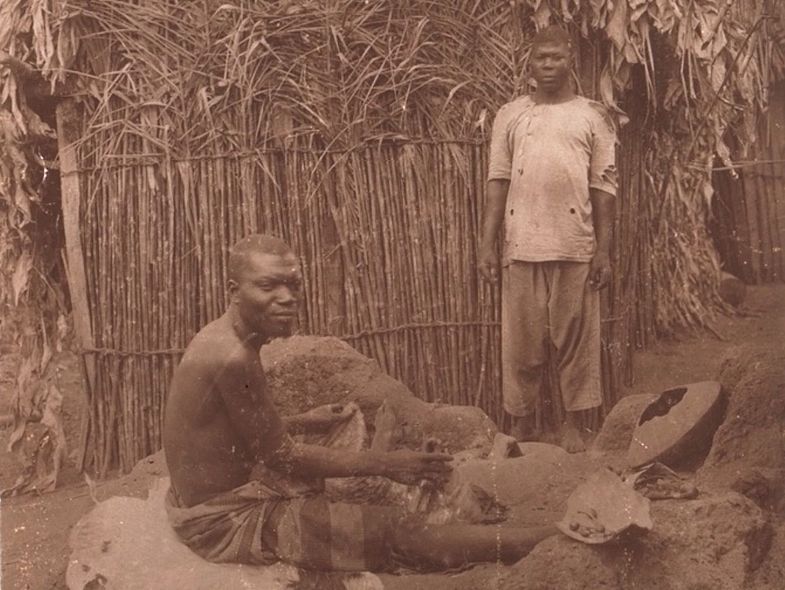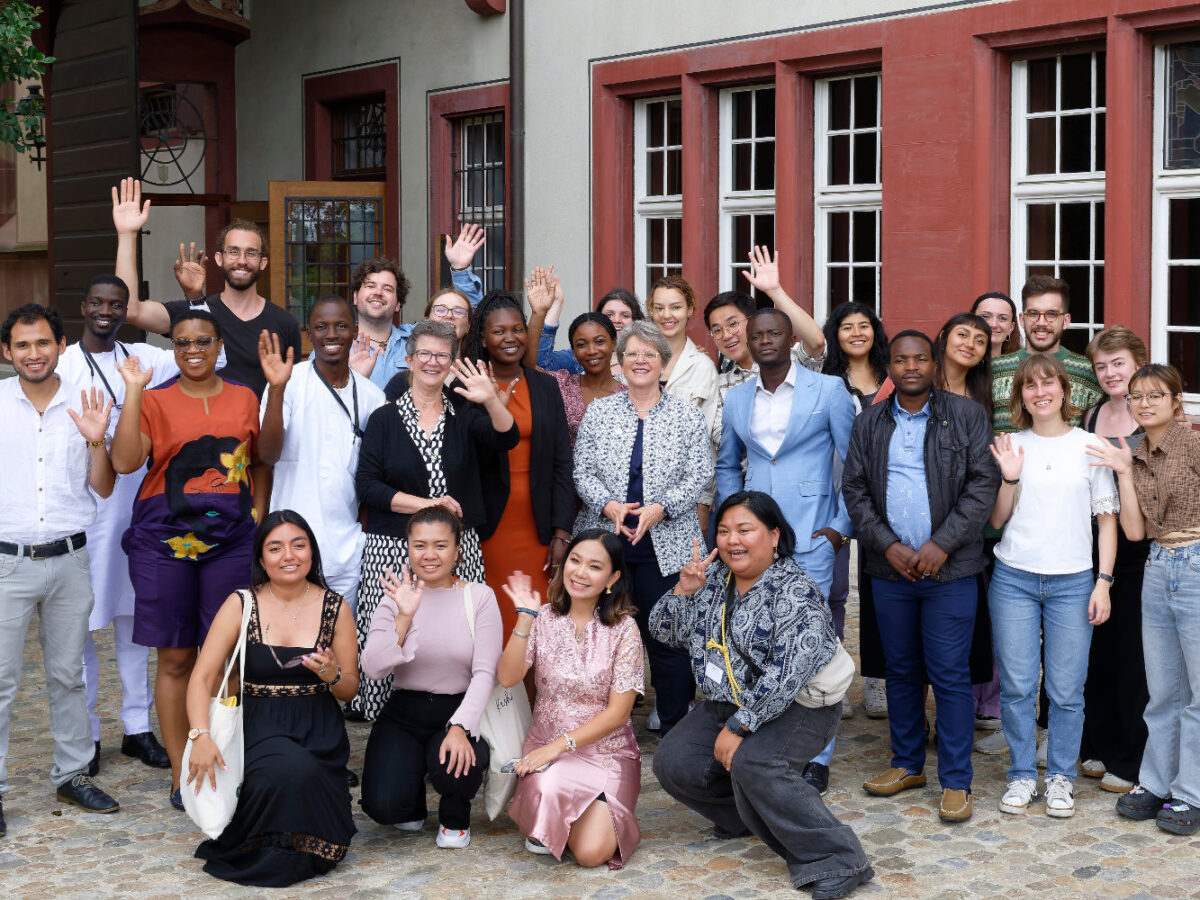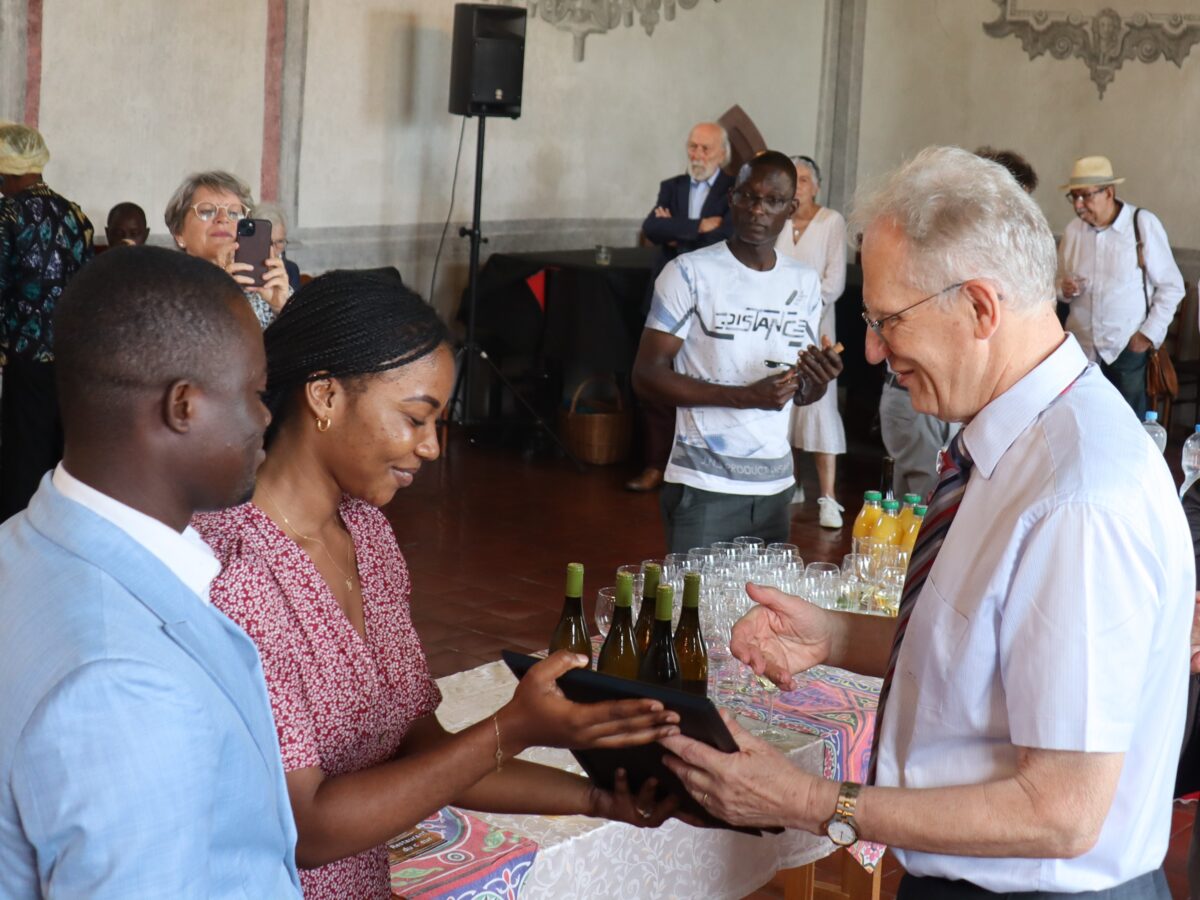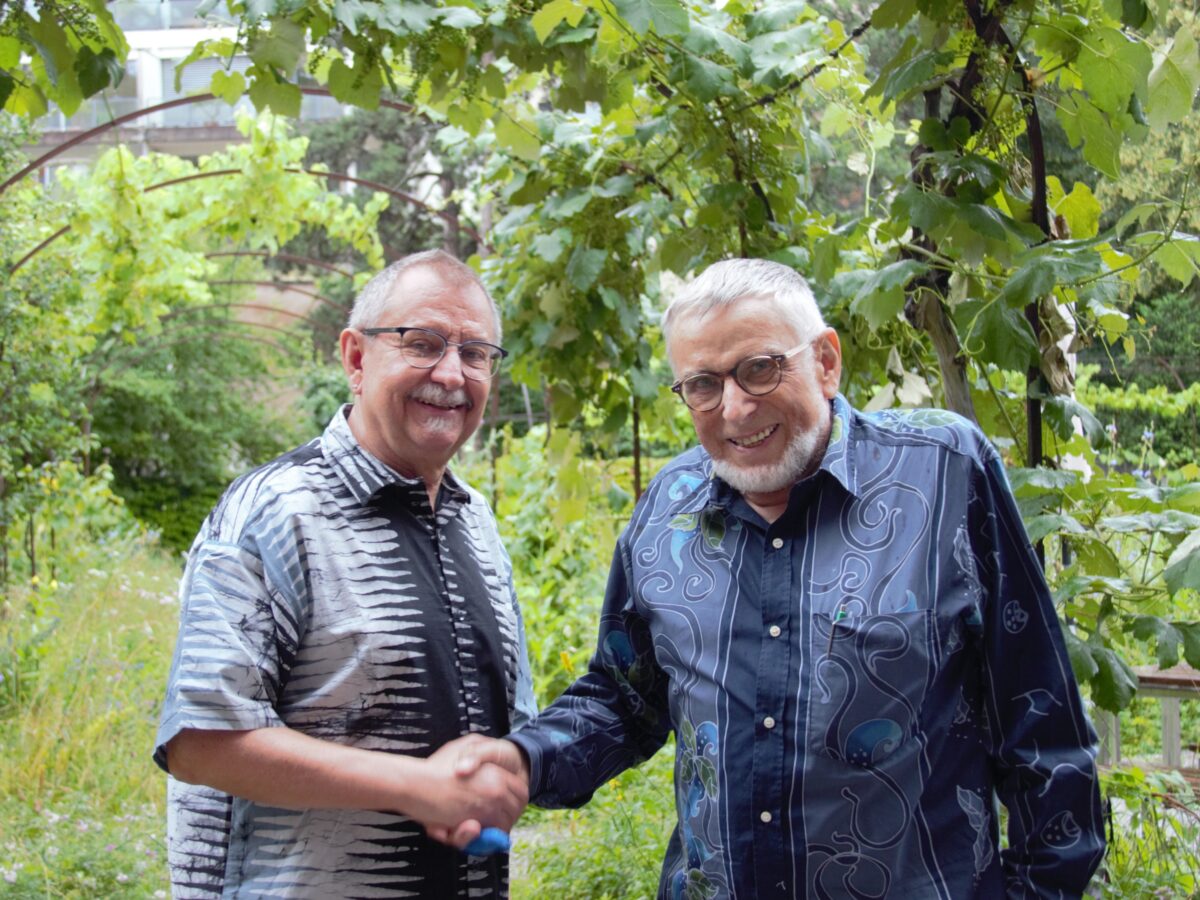By the end of the year, all files of the Basler Handelsgesellschaft will be made accessible. With the generous support of the Christoph Merian Foundation and the Göhner Foundation, the important holdings of this trading house, founded as a "missionary trading company," are now accessible for research.
Mission 21 thus specifically enables the transparent reappraisal of its past, in particular the history of its predecessor organization, the Basel Mission, and thus provides a hand for a differentiated approach to the development of the mission.
In its early years, the trading community had numerous positive effects on the lives of people in the global South. In India, for example, people who had converted to Christianity - mostly members of lower castes and the casteless - were given a new livelihood and better opportunities to earn money thanks to specially built weaving mills and brickworks. This has already been pointed out by Heinrich Christ in his well-founded book "Between religion and business" (2015) pointed out.
On the other hand, there are problematic aspects in the work of the trading company, which was separated from the mission in 1917. Thanks to the newly accessible files, these aspects, too, should be able to be reappraised in a historically competent manner.
Righting wrongs over slave trade
The quest for justice characterized the Basel Mission, founded in 1815, from the very beginning. As early as the 1820s, the mission's leadership decided to use active charity in Africa to fight the injustice inflicted on African men and women in the transcontinental slave trade "by people who called themselves Christians" had been inflicted.
The mission was also resolute in its opposition to the slavery-like social conditions that were common in local society on the Gold Coast (now Ghana). When Andreas Riis, one of the first Basel missionaries there, got involved himself (as the only missionary known so far at all) in the use of local slaves as laborers on his plantation, it triggered criticism in the mission leadership, the committee. It ordered Riis to Basel and dismissed him in 1846 after a hearing.
Difficult to deal with local tradition
The situation on the Gold Coast exemplifies the importance of a differentiated approach to sources in historical research. The historian Peter Hänger has dealt with it in his dissertation "Slavery and the Emancipation of Slaves on the Gold Coast.
The committee in Basel wanted to quickly abolish the slavery-like conditions on the Gold Coast - and was therefore in conflict with the missionaries on site. For the missionaries tolerated even in the 1850s that a total of 12 native employees of the mission as well as some other native parishioners owned family and house slaves. The missionaries, however, also had the welfare of the slaves* in mind, as Hänger notes. For freedmen, there were still hardly any job opportunities in Gold Coast society.
Consistent rejection of slavery
However, the leadership of the mission pushed for a solution and in 1862 immediately banned all slavery within the Christian community on the Gold Coast. This temporarily led to social unrest in the Christian communities, as the social structure and thus the social conditions had to be reorganized.
The study of the specific conditions on the African Gold Coast is a good example of how Mission 21 has been opening its own file holdings to research for some time. Mission 21 is committed to a just society - and this includes an open, critical look at its own past.
Text: Christoph Rácz, Photo: Archive of the Basel Mission
► Information on the Mission 21 research archive
► Donations for the research archive






